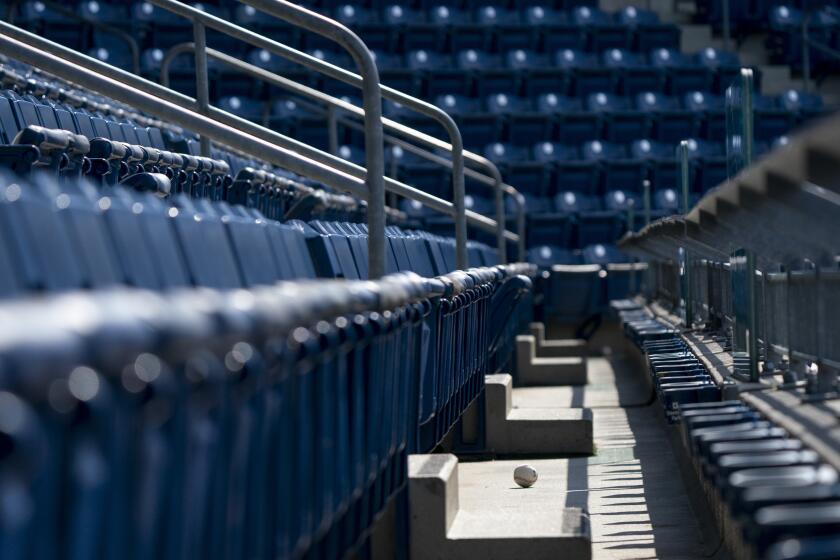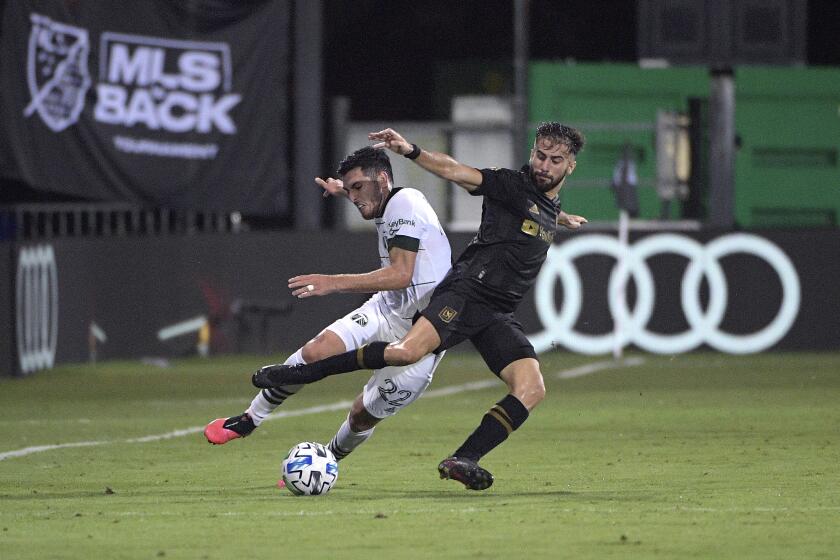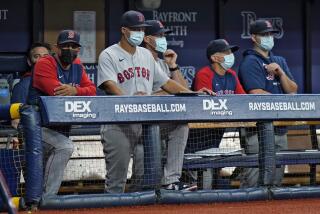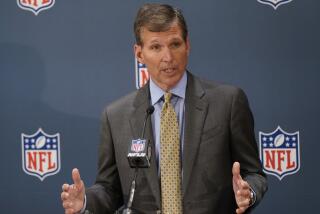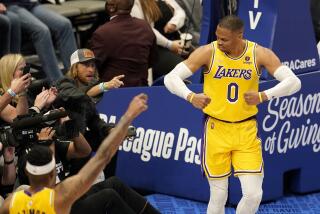Marlins’ coronavirus outbreak prompts postponement of games, has sports world on edge
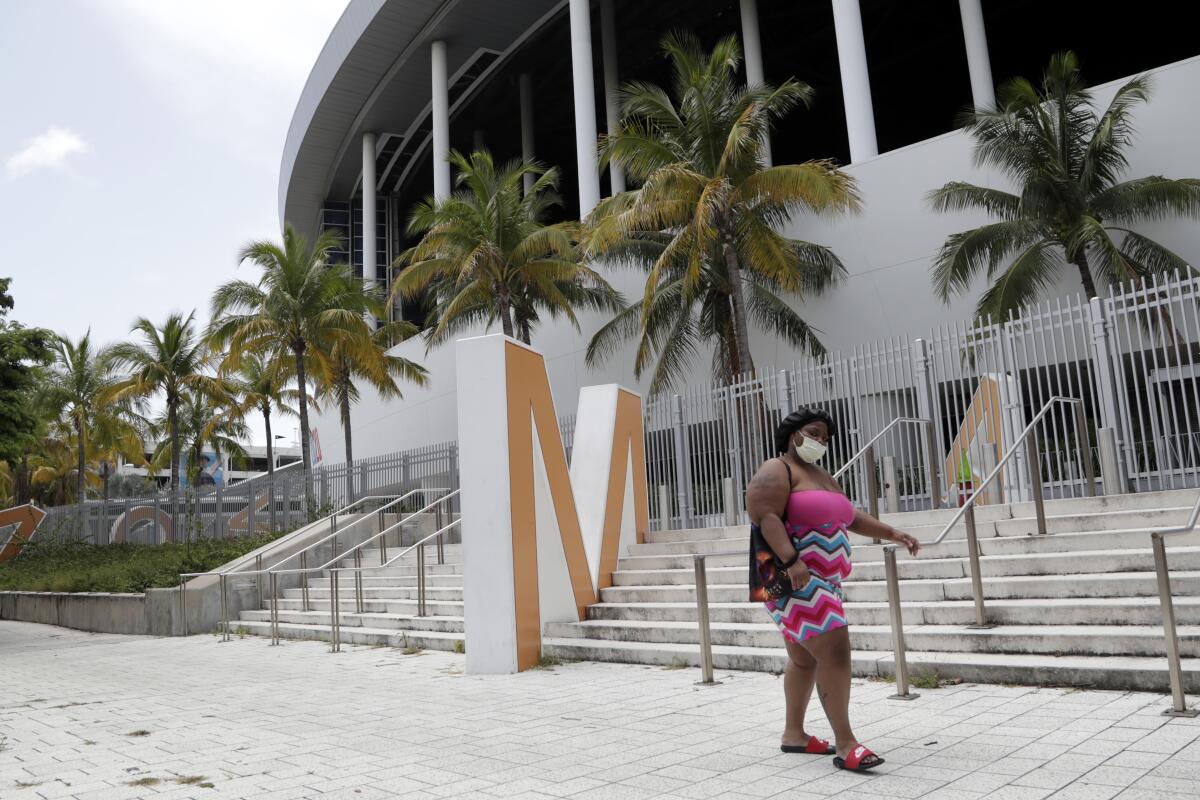
- Share via
Fans may have been caught off guard when, just four days into a new season, a COVID-19 outbreak among the Miami Marlins team forced the postponement of several pro baseball games, but the news did not surprise public health officials.
With cases surging in many parts of the country, experts say Major League Baseball’s predicament shows that anyone can catch the novel coronavirus.
“This is something we knew would happen,” said Anne Rimoin, an epidemiology professor at UCLA’s Fielding School of Public Health. “Baseball has taught us that nobody is immune.”
Eleven players on Miami’s roster tested positive, forcing the postponement of the team’s scheduled home opener Monday and an ensuing game Tuesday. MLB officials also postponed a game in Philadelphia, where the Marlins had played over the weekend, so the Phillies could be tested and their locker rooms disinfected.
Monday’s announcement stirred memories of March, when the NBA abruptly halted its season, a precursor to widespread shutdowns. This time, amid national debate over masks, social distancing and other aspects of the COVID-19 pandemic, experts wonder whether sports might once again serve as a bellwether.
At least 13 members of the Miami Marlins tested positive for COVID-19, yet baseball soldiers on. What would be the breaking point in MLB and other sports?
“There are absolutely lessons to be learned from this,” said Dr. Jared Baeten, a vice dean at the University of Washington’s School of Public Health. “If sports makes this real for everyone, that would be great.”
Six months after its first reported COVID-19 case, the United States has seen a significant increase in infections. The seven-day average dipped Monday, according to data from Johns Hopkins University, but still totaled more than 60,000 cases.
The Marlins figured to be at particular risk because they play in Florida, a state hit hard by the coronavirus. Rimoin noted that the team traveled to Pennsylvania, where officials and the public have worked to flatten the curve.
“You’ve got people going from a high-risk area to lower-risk area,” she said. “Hopefully they were not mixing with the community.”
The outbreak called into question baseball’s strategy for its shortened, 66-day season.
The NHL chose to conclude its schedule in “bubble” conditions, with 12 teams sequestered in Toronto and 12 in Edmonton. On Monday, the league reported no positive results among 4,256 tests. Other sports leagues, such as the NBA and Major League Soccer, also are keeping players in quarantine and holding games at a central location.
The NBA even has established an anonymous tip hotline — dubbed “the Snitch Line” — to report players who violate coronavirus protocol inside its bubble near Orlando, Fla.. And Clippers guard Lou Williams must stay in quarantine for 10 days, missing two games, after he was caught visiting a strip club during an excused absence for a funeral.
“What we’re doing and what they’re doing is so different,” Clippers coach Doc Rivers said in reference to baseball. “I like what we’re doing.”
MLB executives have insisted their season is too long and requires too many ballparks for sequestration, although plans to contain games to spring-training areas in Florida and Arizona were considered at one point. “The longer you go, the more people you have, the less likely it is that you can make the bubble work,” baseball Commissioner Rob Manfred said Monday during an interview on MLB Network.
Franchises have been grouped in geographical divisions to reduce travel but are playing in their own stadiums with no fans present. Players are on the honor system, allowed to go home after work.
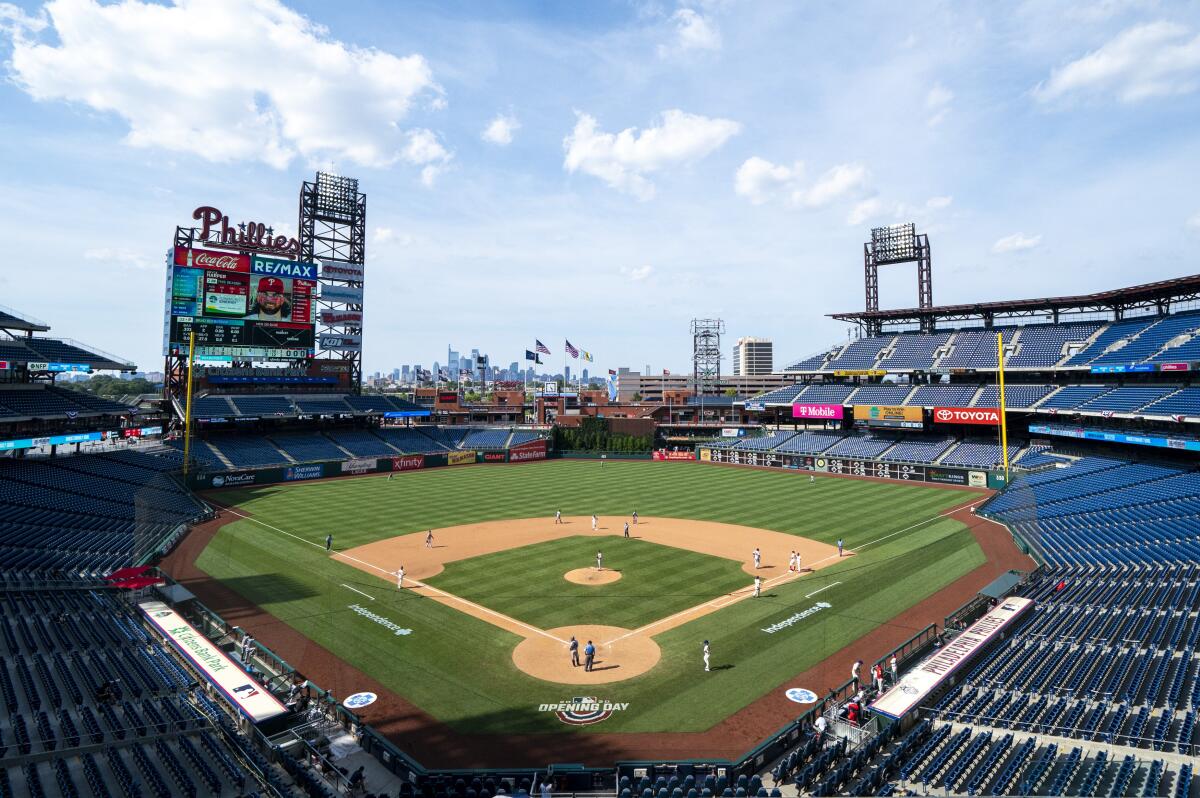
“I think it’s really important to trace how it occurred,” Angels manager Joe Madden said during a videoconference call before his team’s 3-0 loss to the Athletics in Oakland on Monday. “That’s the one thing we need to know first before we jump to a lot of different conclusions. I mean, to me, if there was a breach of protocol by any of those players, then it’s more easily explainable. And if not, then it becomes more problematic.”
MLB officials said they expected some positive tests, with teams keeping a larger-than-usual 30-man roster and 30 more players who are continuing to train in a separate area and would be ready to replace anyone who becomes infected. On Monday, Dodger President Stan Kasten expressed confidence in the approach.
“I don’t believe there is going to be any panic just yet,” he told MLB Network Radio. “I think we understood that there might be occasions like this.”
But earlier this month, Manfred discussed the possibility of more-significant outbreaks during a radio interview.
“If we have a team or two that’s really decimated with a number of people who had the virus and can’t play for any significant period of time, it could have a real impact on the competition and we’d have to think very, very hard about what we’re doing,” Manfred said on “The Dan Patrick Show.”
Washington Nationals manager Dave Martinez, who has a heart condition, acknowledged feeling scared about the prospect of traveling with his team to face Miami in a three-game series scheduled to start Friday.
“My level of concern went from about an 8 to a 12,” he said. “This thing really hits home now that you see half a team get infected.”
Baseball’s dilemma might have an impact on the NFL and college football, both of which have adopted similar protocols for their upcoming seasons in the fall. NFL camps officially open Tuesday, and, like baseball, the league’s teams are using their own facilities to train.
Bruce Arians, coach of the Tampa Bay Buccaneers, believes the league and its teams are doing all they can to be safe. “I don’t think anybody’s going to get sick at work, because we test every day and everybody is clean,” he said during an interview by phone Monday. “So it’s just, ‘What are you doing away from home, away from the office.’ ”
After a rough start that included numerous positive coronavirus tests and withdrawal of two teams, the MLS Is Back tournament has entered its knockout stages.
Said Baeten: “Only the bubble can prevent cases. What was really striking about the Marlins was that they went from zero to 14 cases so fast. That’s not 14 cases coming into the team. That’s transmission within the team and its coaches.”
It would be a mistake to downplay the danger of the coronavirus for athletes who are young and fit enough to be at low risk for severe symptoms. Public health experts cited cases of COVID-19 leading to long-term heart and lung problems even among young patients.
The potential for lasting effects has been particularly worrisome to NBA players. “We’re trying to be extra careful and not have a bad outcome because all it takes is one bad outcome before there’s a lot of regret,” said Dr. Jonathan Kim, a sports cardiologist at Emory University and specialist for the Atlanta Hawks. “Better to be safe and let the science guide.”
Some medical experts are calling for the entire Miami roster to be quarantined for 14 days. Though it remains to be seen how baseball will respond, Kasten said he hopes the outbreak “will teach us things to avoid the repetition of this going forward.”
If nothing else, Baeten wonders whether Monday’s news will send a message to fans across the nation about the importance of wearing masks, washing hands and practicing social distancing.
“We’ll have to see if the Marlins are enough,” he said. “If we’re six weeks out from now and the NFL closes down two teams, maybe that will hit even harder.”
Times staff writers Andrew Greif, Bill Shaikin, Helene Elliott, Dan Woike, Sam Farmer and Maria Torres contributed to this article.
More to Read
Go beyond the scoreboard
Get the latest on L.A.'s teams in the daily Sports Report newsletter.
You may occasionally receive promotional content from the Los Angeles Times.

